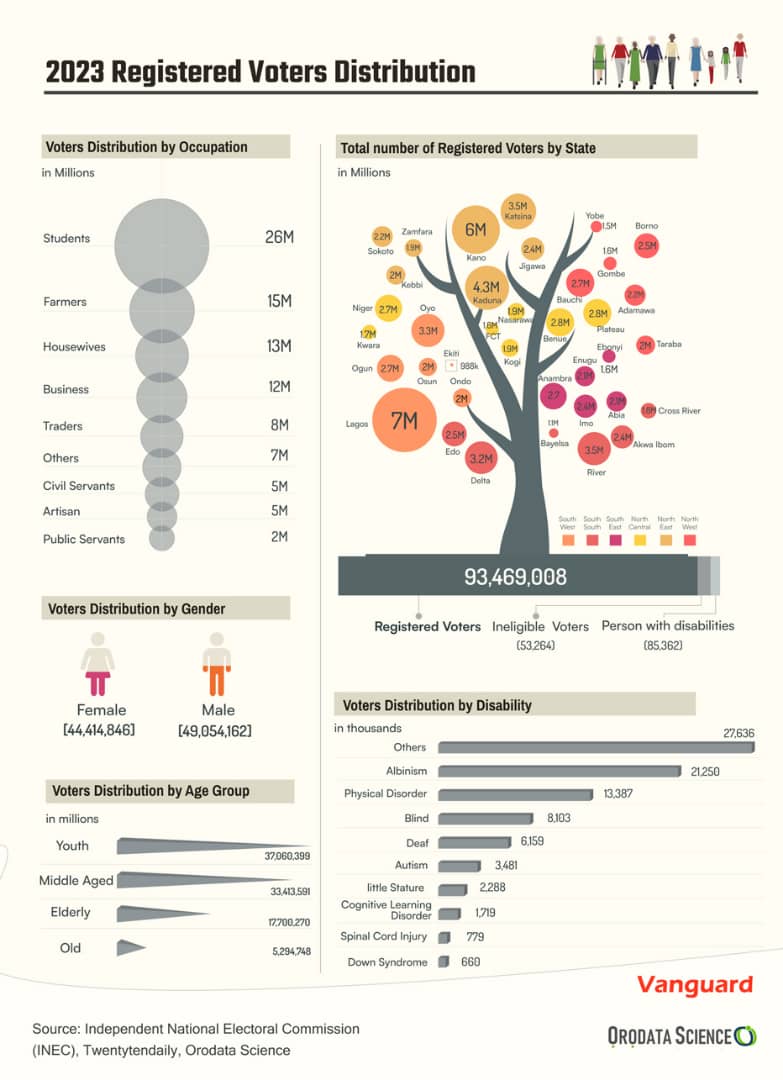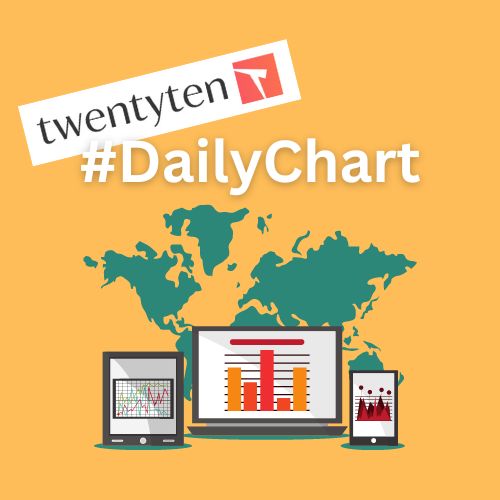Voters’ Apathy persists among Govt Workforce who is to blame?
By Abdullahi Ridhwan Adetutu
Lukman Abdullahi, 47, is a level 12 Ogun state government civil servant, but he will not be taking part in the election tomorrow.
“I did the revalidation around June last year. The previous one I used in 2019 was damaged. But the time I was told to come for the new one, something else came up, so I could go till the deadline elapsed,” he said.
Like Lukman who couldn’t retrieve his PVC from the INEC, Nafisat Abimbola, a Kwara state Teaching staff would also be partaking in the election. Her reason for abstaining from the civic role is however slightly different from Lukeman: she has her PVC but would rather stay back to take care of her family.
Speaking with James, a senior lecturer in an Eastern Nigeria federal university, he explains that his lack of interest in the electoral process is because over the years, the previous processes have not given any dividend to the masses.
“As a young man, I grew up with a strong patriotism, and hoped someday I would lead a political vanguard that will take my people out of penury, but the Nigeria political trajectory over the years has made it difficult even for the dissent minds to participate. So why should anyone care?” James queried.
Aisha Iliam, a medical consultant in a Northwestern Federal Medical Centre simply dismissed the possibility of taking part in the elections. “I am not voting, I am on call,” she simply said.
Government Efforts
Against the July 31st 2022 INEC deadline for continuous voters registrations, no fewer than 12 Nigerian state governments had declared work free days ranging from the least 2-day to a week for their work forces to enable them participate in the forthcoming 2023 general elections.
However, six months later and less than three days to the elections, the recent statistics released by the country’s electoral empire shows that civil servants constitute the lowest percentage of the voters that will be participating in the Saturday election.

According to the INEC’s data, the voters’ strengths by occupational demography shows a combined percentage of the registered governments’ workers at 8.2% representing a meagre 7,66 million voters out of the whopping 93.5 million registered voters. Students constitute the largest category with 26,027,481 (27.8%) of all voters, followed by 14,742,554 (15.8%) Farmers/Fishermen and 13,006,939 (13.9%) housewives.
In comparison, the interest shown by the government workforce shown by this figure is abysmal to other demographic distributions, more embarrassingly when in comparison to the housewives’ figure.
Civic Responsibility not a case with Govt civil workforce
Although with the unprecedented percentage of 75.4 voting strength, the electoral decisions in the country have inherently been bequeathed to the youths (aged 18 and 49) who now seem politically alerted, however, the abysmal figure of the government’s workforce gives a serious concern to the government workforces’ civic responsibility.
In the 2019 general elections, not more than 7,330,838 of the government workforce representing 8.2% of the general registered voters took part in the electoral process. With 7,659,772 registered voters, in comparison, the 2023 figure edges by a meagre of 328, 934.
Nigeria Civil Service Regulation Versus Nigerian Constitution
Arguments over the legal rights of participation in politics of the civil and public servants were laid rest towards the end of 2022 with the allusion from the Supreme Court judgements.
The controversy was particularly over the legal right of the country’s apex Bank’s governor, Godwin Emefiele who had been rumoured to be nursing a political ambition. A rumoured ambition Emefiele never confirmed its truth or otherwise.
However, in a long Op-ed released by one of the country’s legal beagle, a senior advocate of Nigeria, Femi Falana, refuting the heresy around the legal position of Nigerian civil workforce participation in politics.
Falana noted, “Like other citizens, workers are equally entitled, by virtue of section 39 of the Constitution, to freedom of expression, including freedom to hold opinions and to receive and impart ideas and information without interference.
“In Inspector-General of Police v All Nigeria Peoples Party (2008) 12(WRN 65), the Court of Appeal annulled the issuance of police permit for rallies and other public meetings on the grounds that it was a breach of the fundamental rights of citizens to freedom of expression and association guaranteed by sections 39 and 40 of the Constitution”. This position has also been reinforced by the opinions of many other practitioners.


